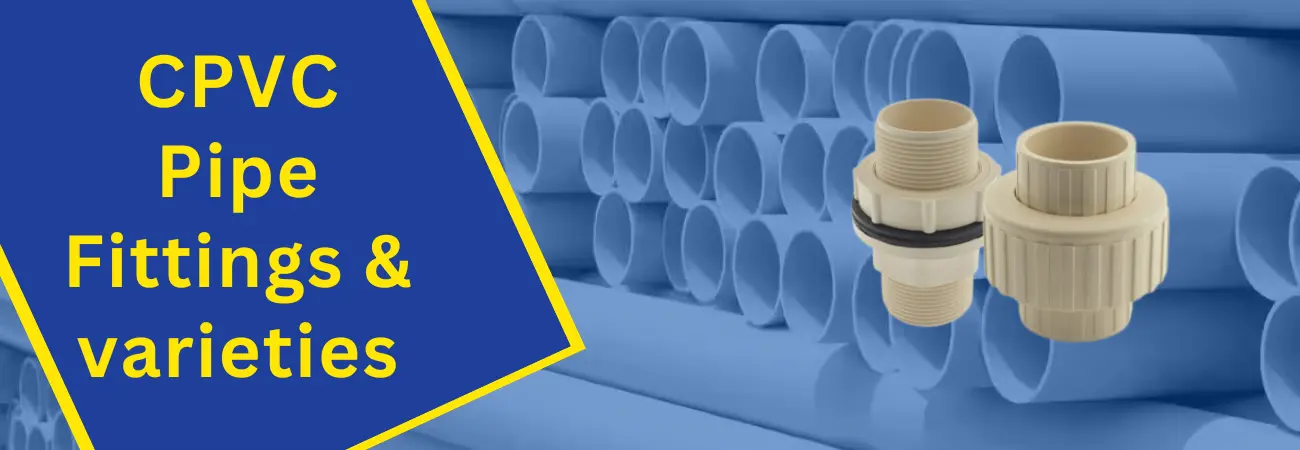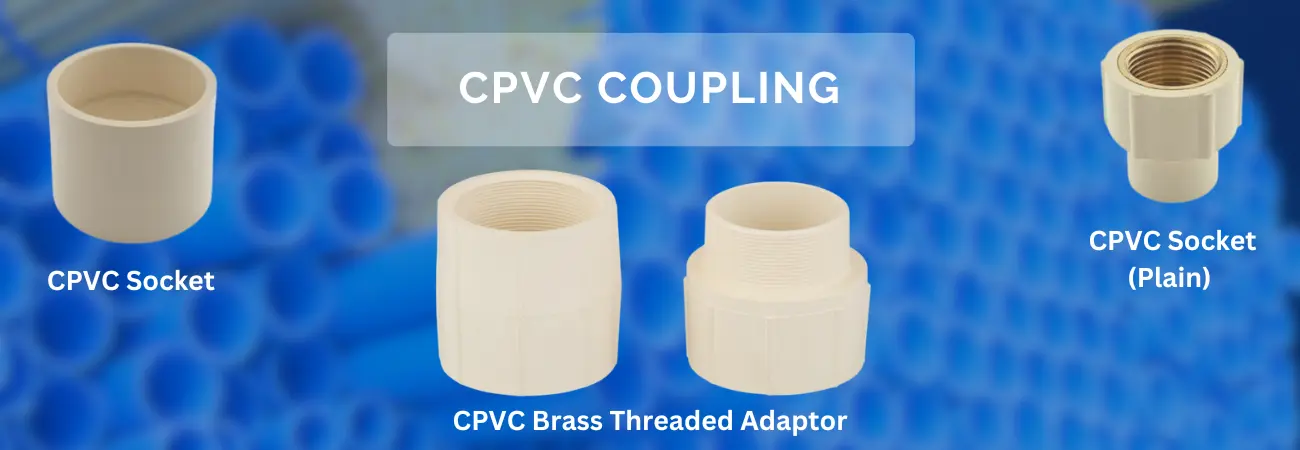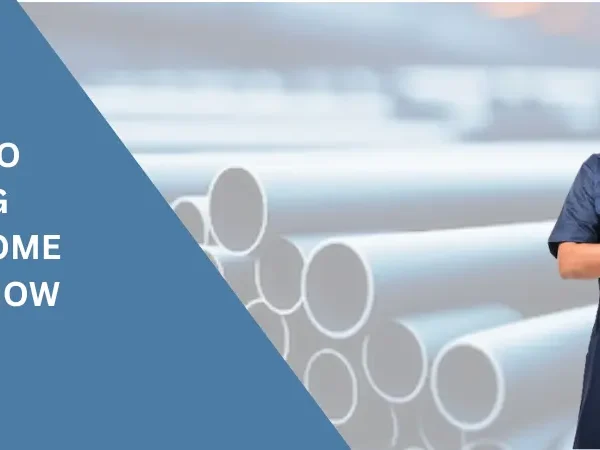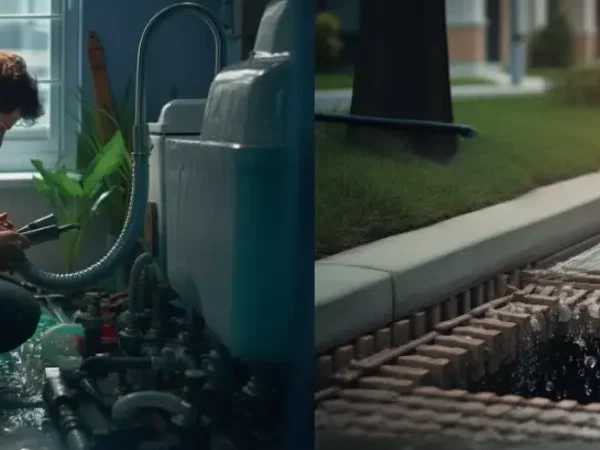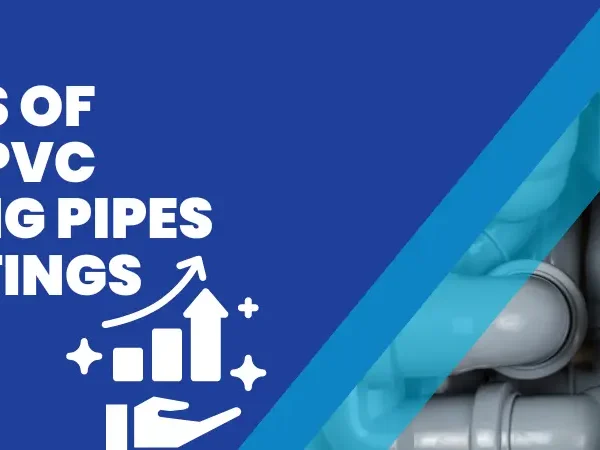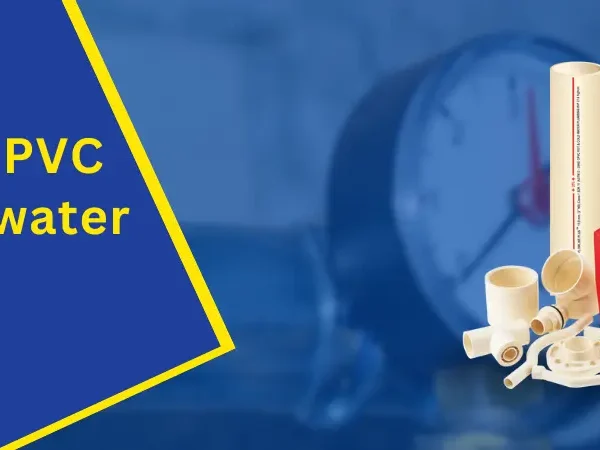Introduction
CPVC Pipe Fittings or CPVC Pipes and Fittings
Chlorinated Polyvinyl Chloride or CPVC pipes and fittings are thermoplastic materials made with CPVC resins. They are one of the most strong and long-lasting materials utilized in piping applications for over 60 years now. They are more adaptable and can withstand higher temperatures when contrasted with PVC pipes.
CPVC is resistant to synthetic chemicals and can withstand high heat temperature and pressure, consequently making it an ideal material for residential, commercial, and industrial piping and fire sprinkler applications.
Ajay CPVC plumbing fittings are delivered from an exceptional blend of chlorinated polyvinyl chloride material with physical properties desirable for plumbing applications for both hot and cold water distribution systems. We equip the latest technology and high-quality raw materials to design CPVC pipes and fittings.
CPVC Pipe Fitting Names and their varieties
CPVC Plain Pipe Fitting
CPVC Plain fittings are fittings which are used to connect 2 or more CPVC pipes using CPVC solvent cements. They are of different types like Tee, Reducing Tee, Elbow or bend, Reducing Elbow, 45 degree Elbow, Socket or coupler, Reducing coupler, Bushings, Step over bends, Long bends, End cap, 3-way Elbows etc.

CPVC Threaded Pipe Fitting
Threaded pipe fittings are used to join the pipe with other bathroom fittings or plumbing equipment like taps, showers, pumps, tanks etc. The threads may be of CPVC or of Brass. Usually Brass insert type CPVC fittings are recommended for Hot water application. They are also of different varieties such as Male adaptor or MTA, Female adaptor or FTA, Brass Tee, Brass MTA, Brass FTA, and Brass Elbow.

CPVC Union
It’s a combination of threaded adaptor, plain adaptor & threaded ring. The basic function of a union is to connect two pipes, the same like a socket & the basic difference is, socket joint is a kind of permanent joint & the union is designed to be easily removed at any time.
CPVC Valves
CPVC Valves
The most common feature of valves is to control the flow. Most common valves are like CPVC Ball valve & CPVC concealed valve used in piping systems.
CPVC Flange
Flange joint is a method of connecting pipes, valves, pumps & other equipment to form a piping system. It also provides easy access for cleaning. Flange joints are made by bolting together two flanges with a gasket between them to provide seal.
CPVC Tank Nipple
Tank nipples with both end or one end thread usually connects the whole piping system with the overhead tank.
Sizes of CPVC pipe fittings
CPVC fittings are available in inch sizes: ½” (15mm), ¾”(20mm), 1” (25mm), 1 ¼”(32mm), 1 ½”(40mm), 2” (50mm) in Copper tube sizes (CTS) and 2 ½”(75mm), 3” (90mm), 4” (110mm), 6” (160mm) & 8” (200mm) in Iron Pipe sizes (IPS).
CPVC pipe fitting standards:
CPVC Fittings are manufactured using American standard ASTM D 2846 for copper tube size and ASTM F438 and ASTM F439 for Iron pipe sizes in Sch 40 and Sch 80 respectively.
In 2021 Indian standard for CPVC fittings IS 17546 has been released.
CPVC Plumbing Fittings Joining Techniques
Nonmetallic pipes like CPVC pipes and fittings are joined either using solvent cement or threaded.
Solvent Jointed CPVC pipe fittings
Plain type CPVC Pipe Fittings use solvent joint method to join two or more CPVC pipes.
Threaded Joint CPVC pipe fittings
It is a mechanical jointing between male & female Plastic/Brass Threaded parts. This method is used to join the CPVC Pipe fitting with other components of plumbing such as bathroom fittings, pumps, tanks, valves etc. In this case teflon tape is to be used as a thread sealant.
Why Choose Ajay Flowline Plus CPVC plumbing fittings
Ajay pipes is highly focused towards offering the best CPVC plumbing fittings in India. Our products are designed to provide ease of use, superior quality and performance, easier to install for plumbers and are long-lasting. Our wide range of CPVC pipes and fittings are manufactured from advanced NSF certified CPVC compounds and Ajay Flowline Plus is the most certified CPVC system in India.
We offer a complete range of CPVC pipe fittings from 1/2″ up to 8″ fittings, ball valves, primers, and solvent cement. We incorporate the latest innovation in CPVC polymer technology that offers a 25% higher pressure rating at elevated temperatures and substantially increased impact strength when compared to generic CPVC.
Difference between UPVC and CPVC Pipe fittings
The primary difference between UPVC and CPVC Pipe fittings is that UPVC fittings can only be used with UPVC Pipes and is suitable for temperature upto 60 Degree C whereas CPVC fittings have to be used with CPVC pipes and are suitable for applications upto 93 Degree C.
Further CPVC fittings are lighter in weight, easier to install and more rigid than UPVC fittings.
For any queries, contact the plumbing experts at Ajay pipes on the Toll Free No. : 1800-11-4050 or via email at our email address info@ajaypipes.com

